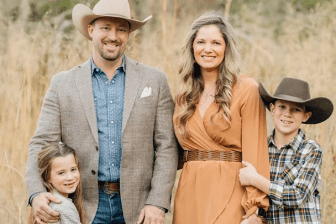The views of the looming legalization of recreational marijuana are broad on Regina City Council.

“I don’t think the residents of Regina, and maybe I should only speak personally, want to be any part of feeding a growing drug culture in the country,” Councillor Bob Hawkins said.
Hawkins also voiced displeasure in the current process. He said for any other industry council would know the potential cost before voting on approval of potential licensing.
“We’ve got it upside down here,” Hawkins said.
On the flipside, Councillor Andrew Stevens said that Regina should look to American cities in states where marijuana is legal.
“As the evidence shows there’s actually another side to this coin, which is a tremendous economic development opportunity,” Stevens said.
“The revenue source for municipalities, as well as the state, far exceeds the policing costs. The policing costs are actually insignificant compared to the social benefit.”
READ MORE: Pot can’t save the province. Saskatchewan’s best hope is to ‘break even’
There are no public provincial models on what kind of revenue may be generated from marijuana in Saskatchewan. The federal government will take 25 per cent of the revenue and the rest goes to the provinces. Due to a lack of concrete data, there has yet to be a municipal revenue sharing announcement in Saskatchewan.
- Canadian man dies during Texas Ironman event. His widow wants answers as to why
- ‘Shock and disbelief’ after Manitoba school trustee’s Indigenous comments
- Several baby products have been recalled by Health Canada. Here’s the list
- ‘Sciatica was gone’: hospital performs robot-assisted spinal surgery in Canadian first
Wednesday’s Executive Committee meeting aimed to generate some answers as to what marijuana will cost Regina.
READ MORE: Regina police anticipate legal marijuana will cost at least $1.2M annually
The most concrete estimates comes from the Regina Police Service (RPS), with an estimate of $1.2-$1.8 million.
On top of $25,000- $50,000 as an annual expense over the next four years to purchase roadside testing equipment once available, Chief Evan Bray said training officers to better handle drug impaired driving charges will be a major expense.
“In order to have police officers accepted as expert witnesses in court in regard to drug recognition there’s a course they have to be able to pass. That course, believe it or not, is not offered in Canada,” Bray said.
The RPS sends officers to get drug recognition expert (DRE) training in the southern United States. It costs approximately $15,000 to cover travel, accommodations, expenses, and tuition for the three week course.
DRE trained officers use specialized scientific and mathematic based evidence to gauge impairment, and their expert knowledge can lead to impaired driving charges and convictions.
Bray said nine or 11 officers currently have DRE training. Bray wants to have 40. That comes to an approximately $450,000 bill.
There are still big questions for how legal marijuana will affect other city services. This is a frustrating process for Mayor Michael Fougere.
“We don’t know a lot of things. We know some things. The police service has fairly easily done what they can do, but Fire & Protective Services not so much, our administration not so much either,” Fougere said.
READ MORE: Moose Jaw says ‘yes’ to cannabis stores
Fire & Protective Services handle bylaw complaints in Regina, in addition to traditional fire responsibilities. They are concerned about fire risks posed by indoor grow operations and potential odor complaints.
Among recommendations approved by Executive Committee, is that the mayor write a letter to Premier Scott Moe. The letter will request some of the provincial pot revenue goes to the city to help recover costs.
“The province says they want to know what our costs are and getting some portion of cannabis revenue. We now have those numbers, and we’ll have greater numbers going forward,” Fougere said.
The city will draft further estimates once more information is made available by the federal and provincial governments.
This discussion will continue at the February 26 council meeting, where final debate and potential approval of six marijuana dispensaries will take place.




Comments